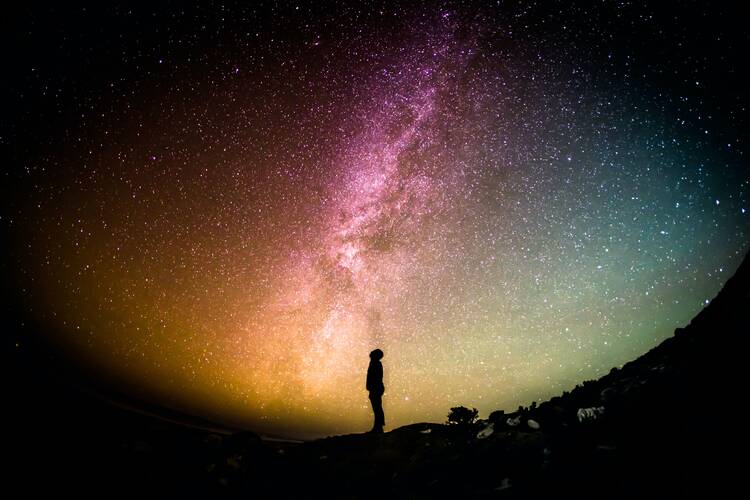Memorial of Saint Paul Miki and Companions, Martyrs
Find today’s readings here.
In the beginning, when God created the heavens and the earth,
the earth was a formless wasteland, and darkness covered the abyss,
while a mighty wind swept over the waters. (Gen 1:1-2)
We hear today’s first reading, from the beginning of Genesis, so often as children that we know the story of how God created the world in six days, then rested on the seventh day. It’s a teaching accepted by Jews and Christians alike.
I’ve been listening to the Catechism in a Year podcast with Father Mike Schmitz, and the section we’re currently on is all about God the Father (beginning with CCC 185). And while we won’t reach the section on creation in the catechism for another few weeks, I was still struck when looking over today’s first reading, since Father Mike has been talking about how amazing it is that God made us and the world—not because we “needed” to be made or because he wanted some kind of self-affirmation, but just out of sheer love.
Even though it seems mundane, the fact we are all here is a divine act of God, and we should be grateful for it.
How does God exist outside of time? It’s a question that could be posed by a first grader, but even the most learned of Scripture scholars could never fully answer it. How did something come from nothing? Those chemistry problems where you have to add up molecules to get something new remind us that the two sides of the equation must be equal—by natural law, something cannot be created out of nothing. How do you go from this darkness to light? From water to earth, suddenly existing?
These are questions we’ve known about since childhood, yet we still cannot answer them. Just like Jesus healing people throughout the Gospels (and in today’s Gospel, too), these acts are miracles performed by God, even if we don’t think of them that way. The world we live in is itself a miracle. But it’s a different kind of miracle than what Jesus did—healing through a tassel on one’s cloak is not something you see every day. But we see the sun move, we watch plants grow, we ourselves continue to breathe the air that God made.
So go ahead and take part in creation: Water your plant, enjoy the sunset, have a chat with a fellow created being (human or otherwise; talking to your dog counts). Today, let us appreciate creation for what it is: a miracle. Even though it seems mundane, the fact we are all here is a divine act of God, and we should be grateful for it.








